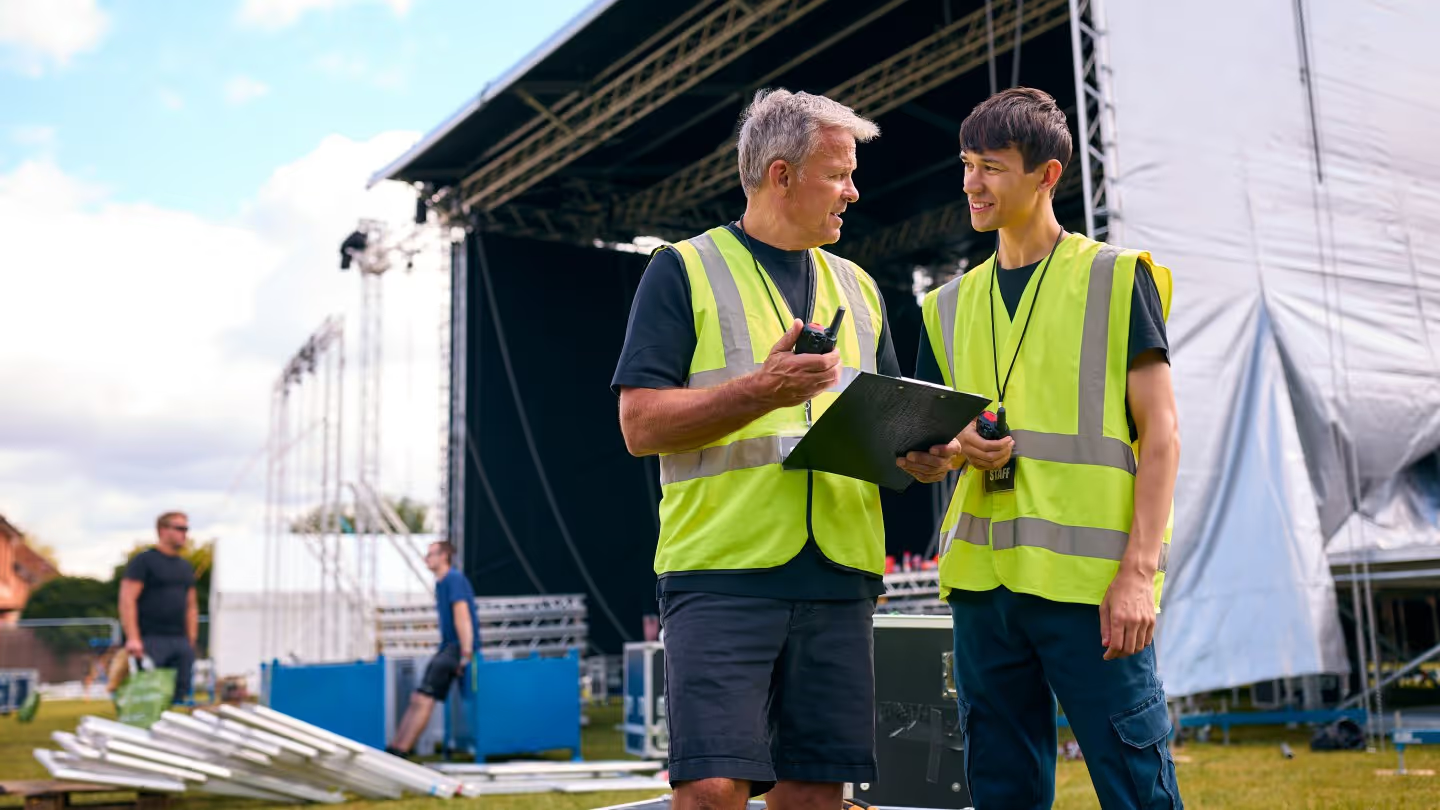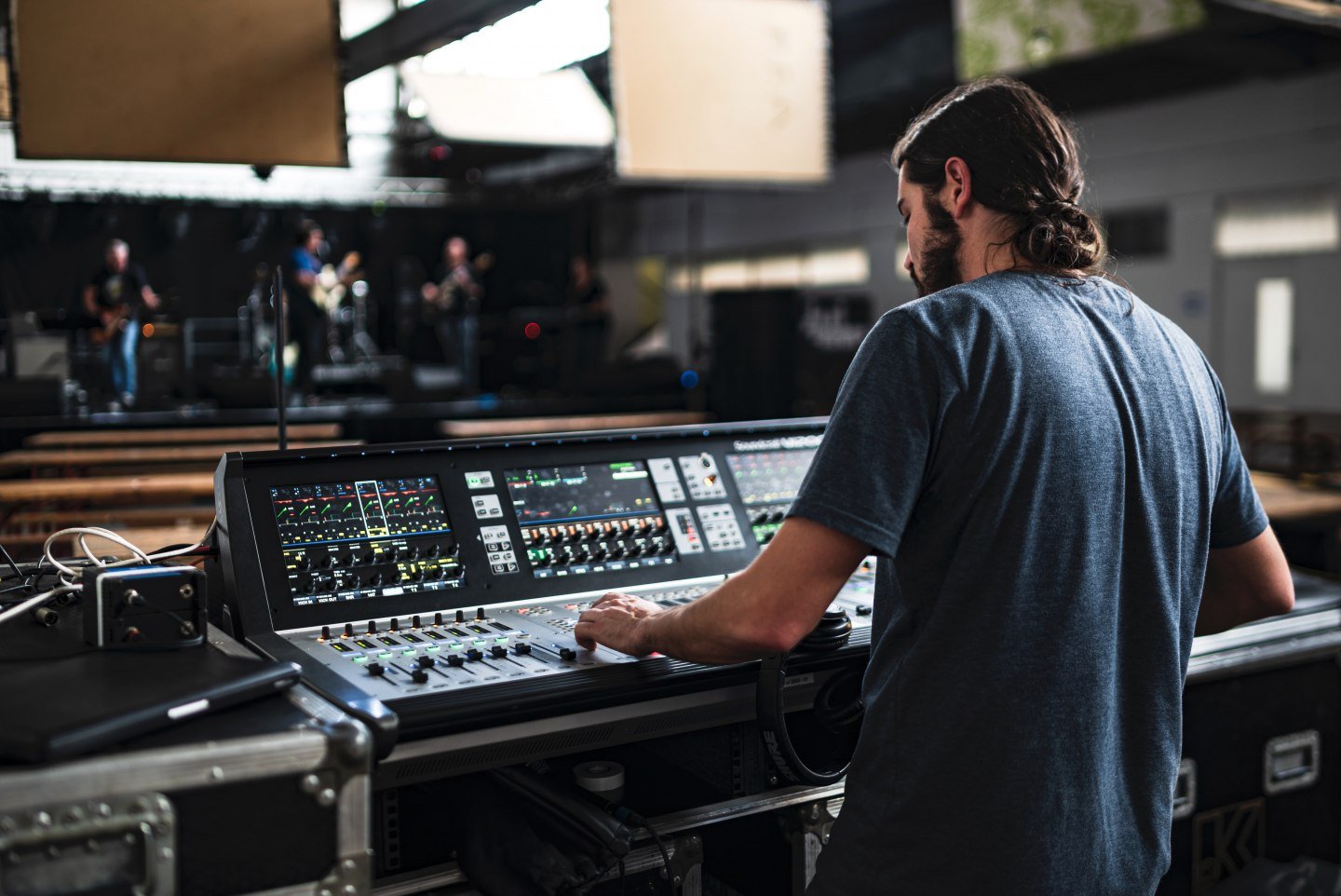Understanding the Role of Supervised Employees in Events and Media Production Teams

The role of supervised employees is crucial to ensuring the smooth execution of events and media projects and achieving high levels of customer satisfaction. So, let's talk about the employees supervised meaning.
This article covers the responsibilities involved and best practices for effective supervision in the context of the events and media production industries.
1. Defining Supervised Employees
2. The Importance of Supervised Employees in Events and Media Productions
3. Key Responsibilities of Supervisors in Events and Media Productions
4. Best Practices for Supervising Employees in Events and Media Productions
5. Addressing Challenges in Supervising Employees
6. Conclusion
Defining Supervised Employees
What Does "Employees Supervised" Mean?
The term "employees supervised" refers to individuals who work under the direct oversight of a supervisor or manager. These employees are guided, monitored, and evaluated by their supervisors to ensure they perform their tasks effectively and meet the organization’s standards and goals. In the events and media production sectors, a supervised employee may range from junior staff and interns to more experienced team leaders and members involved in various stages of production and event management.
Supervised Employee Means: Key Responsibilities
A supervised employee refers to someone who receives instructions, guidance, and feedback from a supervisor. It often can be a new untrained employee. Such a person is accountable for completing assigned tasks in a timely manner. It's their responsibility to adhere to the protocols and standards set by the organization how to supervise employees. This relationship ensures that the employee’s performance aligns with the strategic objectives of the company.
The Importance of Supervised Employees in Events and Media Productions
Ensuring High-Quality Outputs
In events and media productions, quality is paramount. A supervised employee can contribute significantly to maintaining high standards by following established processes and receiving continuous feedback and support from their supervisors. This direct oversight helps in evaluating employee performance, minimizing errors and enhancing the overall quality of work.
Enhancing Customer Satisfaction
Supervising employees ensures that projects are executed flawlessly, client expectations are met, and any issues are promptly addressed. This level of control helps in delivering projects that delight clients and build long-term relationships.
Facilitating Skill Development
A supervised employee benefits from regular training and development opportunities provided by their supervisors. This ongoing development is essential in keeping up with industry trends, improving job performance and business results. Supervisors play a crucial role in identifying skill gaps and facilitating relevant training programs.
Key Responsibilities of Supervisors in Events and Media Productions
Direct Oversight and Management
Supervisors are responsible for the direct oversight and hiring of their team members. This involves closely monitoring the progress of tasks, providing timely feedback, and ensuring that employees adhere to project timelines and quality standards.
Providing Guidance and Instructions
Effective supervision involves offering clear guidance and instructions to employees depending on the department. This includes setting expectations for behavior, outlining tasks, and providing the necessary resources and support to complete assignments successfully.
Performance Evaluation and Feedback
Regular performance evaluations and feedback sessions are crucial in the supervision process. Supervisors assess the performance of their team members, recognize their achievements, encourage development, and identify areas for improvement. Constructive feedback helps employees grow and enhance their skills.
Handling Employment Issues and Concerns
Supervisors are also responsible for addressing any issues or concerns raised by their employees. This includes resolving conflicts, providing support during challenging times, and ensuring a positive work and learning environment.
Best Practices for Supervising Employees in Events and Media Productions
Establish Clear Communication Channels
Effective and strong communication skills is the foundation of successful supervision. Supervisors should establish clear and open communication channels with their employees, encouraging them to share ideas, ask questions, and provide feedback.
Set Realistic Goals and Expectations
Setting realistic goals and expectations is essential for guiding employees towards workplace success. Supervisors should clearly define the objectives of each task and provide a roadmap for achieving them.
Foster a Collaborative Work Environment
Encouraging collaboration and teamwork is vital in the events and media production industries. Supervisors should create an environment where employees feel valued and are motivated to work together towards common goals.
Provide Regular Training and Development
Continuous training and development are crucial for keeping employees updated with the latest industry trends, knowledge and technologies. Supervisors should identify training needs and provide opportunities for skill enhancement.
Recognize and Reward Achievements
Recognizing and rewarding employees' achievements is essential for maintaining motivation and job satisfaction. Supervisors should regularly acknowledge the hard work and contributions of their team members.
Implement Effective Time Management
Supervisors should ensure that tasks are completed in a timely manner by implementing effective time management strategies. This includes setting deadlines, prioritizing tasks, and monitoring progress.
Addressing Challenges in Supervising Employees
Managing Diverse Teams
The events and media production industries often involve working with diverse teams, including freelancers, part-time workers, and full-time employees. Supervisors need to adapt their supervision techniques to cater to the varying needs and expectations of these different groups.
Handling Performance Issues
When performance issues arise, it is important for supervisors to address them promptly and effectively. This involves having difficult conversations, providing constructive feedback, and implementing performance improvement plans where necessary.
These plans should be created ahead of any termination date, while the person is still employed. It's a matter of compliance to also address a separation date.
Balancing Supervision and Operational Demands
Supervisors in the events and media production industries are often required to juggle multiple responsibilities, including overseeing projects, managing logistics, and supervising staff. Balancing these demands requires effective time management and delegation skills.
Conclusion
Supervised employees play a pivotal role in the success of events and media productions. By providing direct oversight, guidance, and support, supervisors ensure that their teams perform at their best, resulting in high-quality events and media outputs.
Effective supervision involves clear communication, setting realistic goals, fostering collaboration, providing ongoing training, and recognizing achievements. Supervisors must also have leadership skills and be adept at handling diverse teams, addressing performance issues, and balancing their various responsibilities.
In conclusion, the relationship between supervisors and supervised employees is fundamental to the operational efficiency and success of event and media production businesses. By mastering the art of supervision, organizations can build a skilled, motivated, and high-performing workforce capable of delivering exceptional results in the competitive landscape of the events and media production industries.
Frequently asked questions
Previous blog posts



